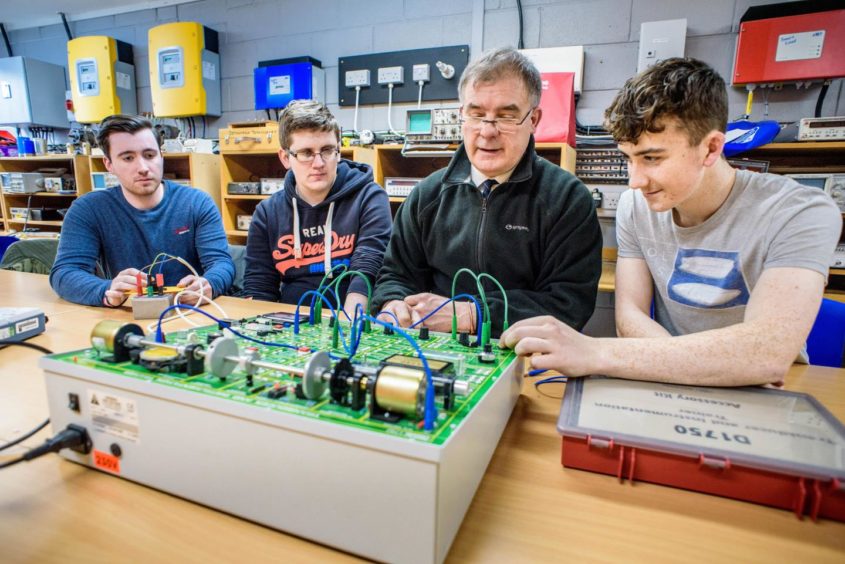
A ScotWind partnership, led by SSE Renewables, has teamed up with the University of Highlands and Islands (UHI) to help develop the skills of the future.
The Memorandum of Understanding (MoU), which includes Japanese conglomerate Marubeni and Danish fund management company Copenhagen Infrastructure Partners (CIP), is designed to foster collaboration, delivering targeted education, research and employability initiatives.
SSE Renewables announced last year that it had joined forces with Marubeni and CIP to bid in the ScotWind leasing process, due to close this week.
The trio intend to work with the university to help to create the skills required to develop, construct and operate future offshore wind farms in Scotland.
That includes the promotion of science, technology, engineering and mathematics (STEM) learning in primary and secondary schools.
Moreover, it covers the development of the university’s curriculum to support the changing needs of the industry and the provision of academic capability to support industry research.
Paul Cooley, SSE Renewables director of capital projects, said: “We are delighted that our ScotWind partnership has signed this MOU with the University of the Highlands and Islands which demonstrates our firm commitment to skills development.
“SSE has already supported the work of the university for many years and this new partnership will allow us to inspire school pupils to choose a STEM career within the offshore wind industry and provide the right curriculum to meet the emerging needs of the sector including areas such as floating wind and green hydrogen roll-out.
“These skills will be vital for the delivery of ScotWind projects to help meet our net zero obligations.”
Professor Todd Walker, UHI, principal and vice-chancellor, added: “Our mission is to have a transformational impact on the prospects of our region, its economy, its people and its communities.
“The latest Scotwind offshore leasing round presents a significant opportunity to help realise Scotland’s ambitions towards net zero targets.
“It also offers huge potential for the communities in which our University is rooted, with a requirement for skills, infrastructure and facilities to support the production of green energy.”
Recommended for you


 © Supplied by SSE Renewables
© Supplied by SSE Renewables